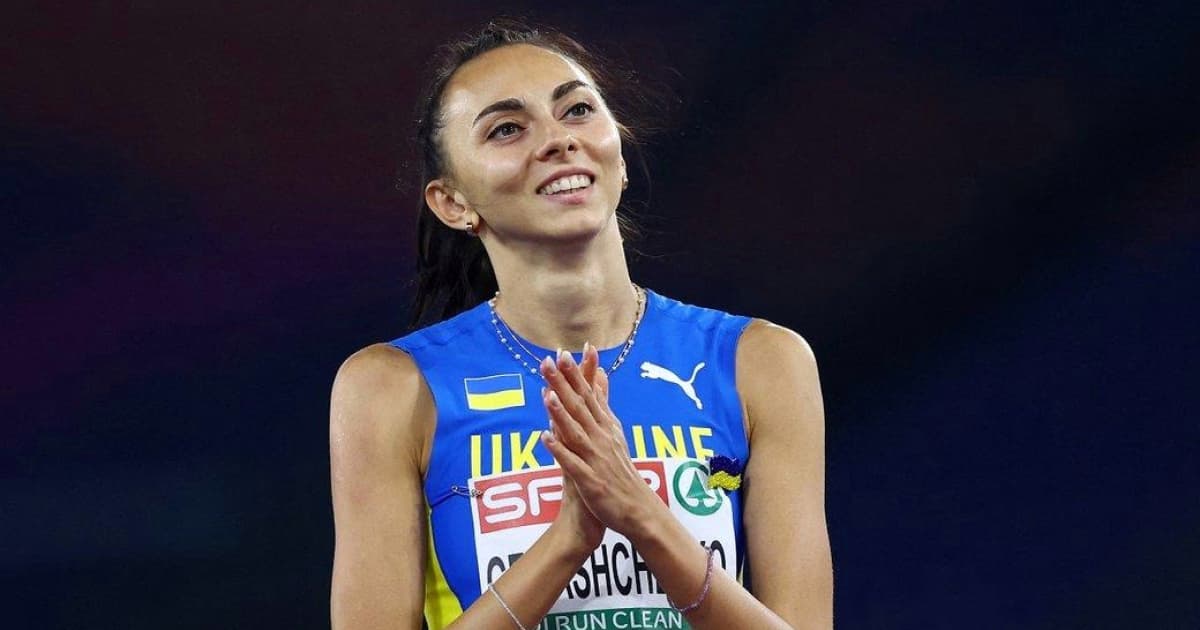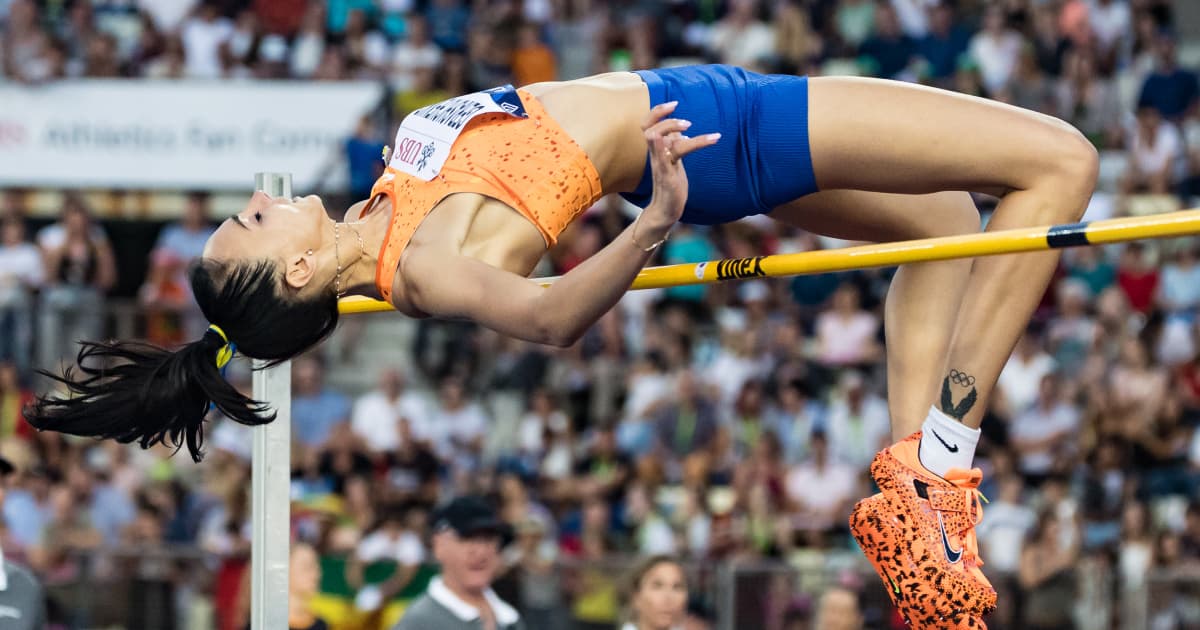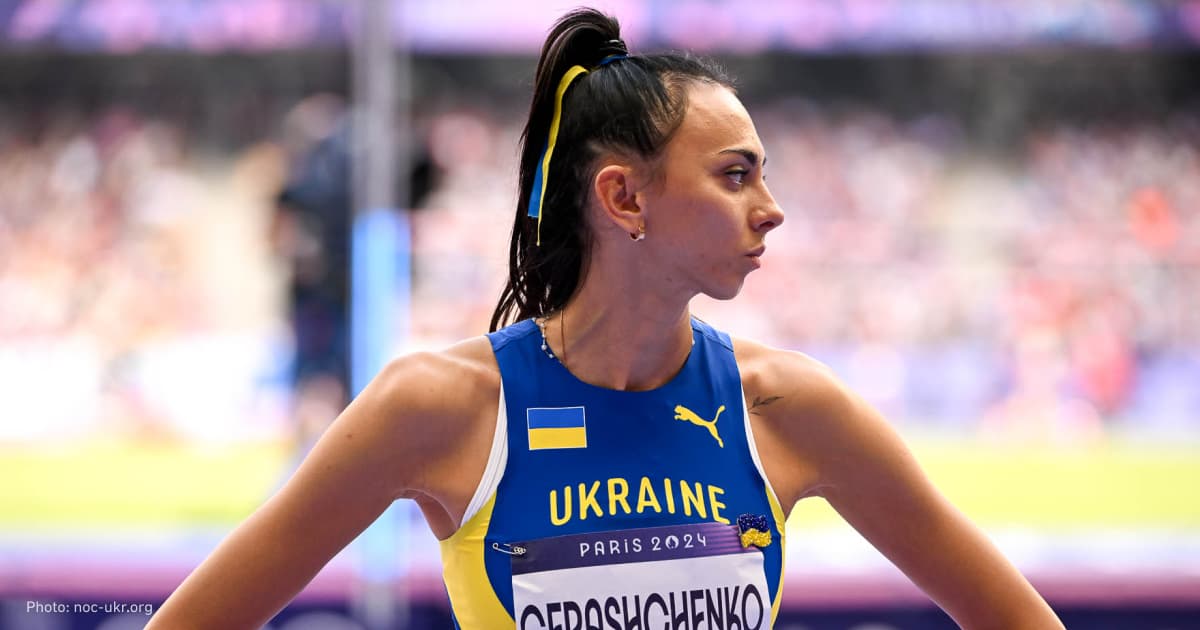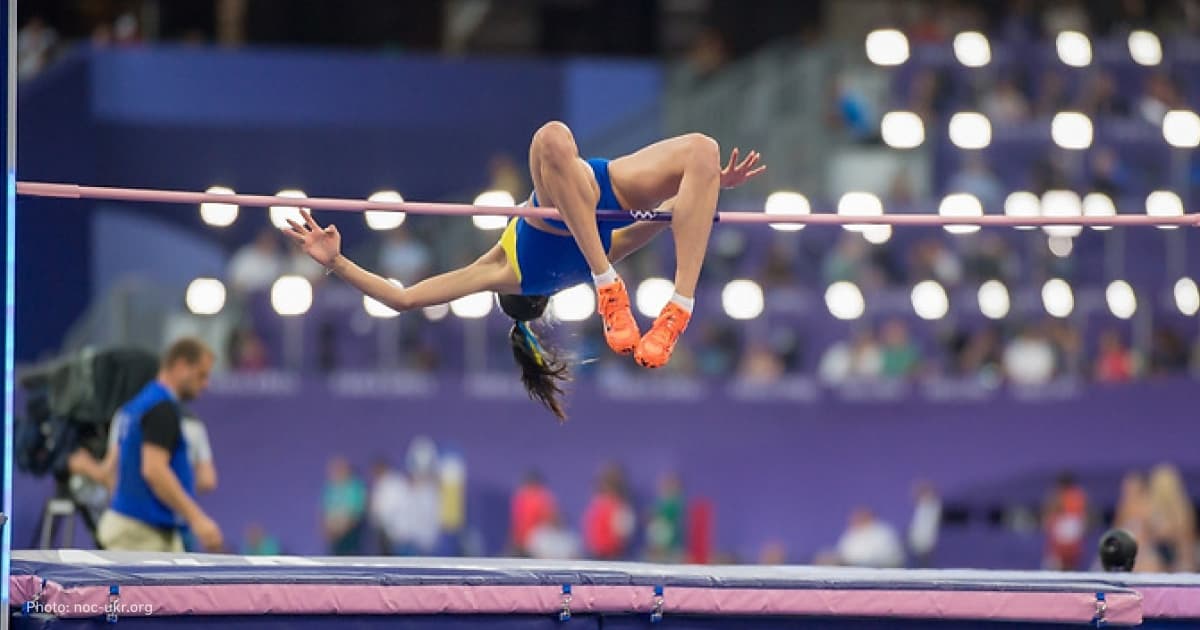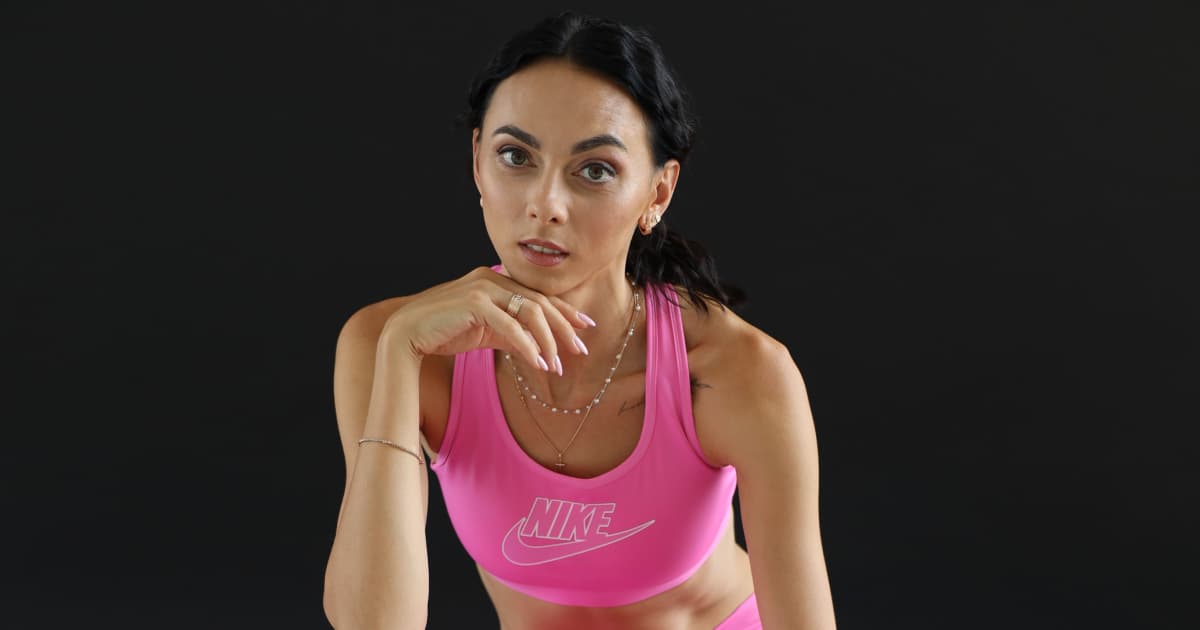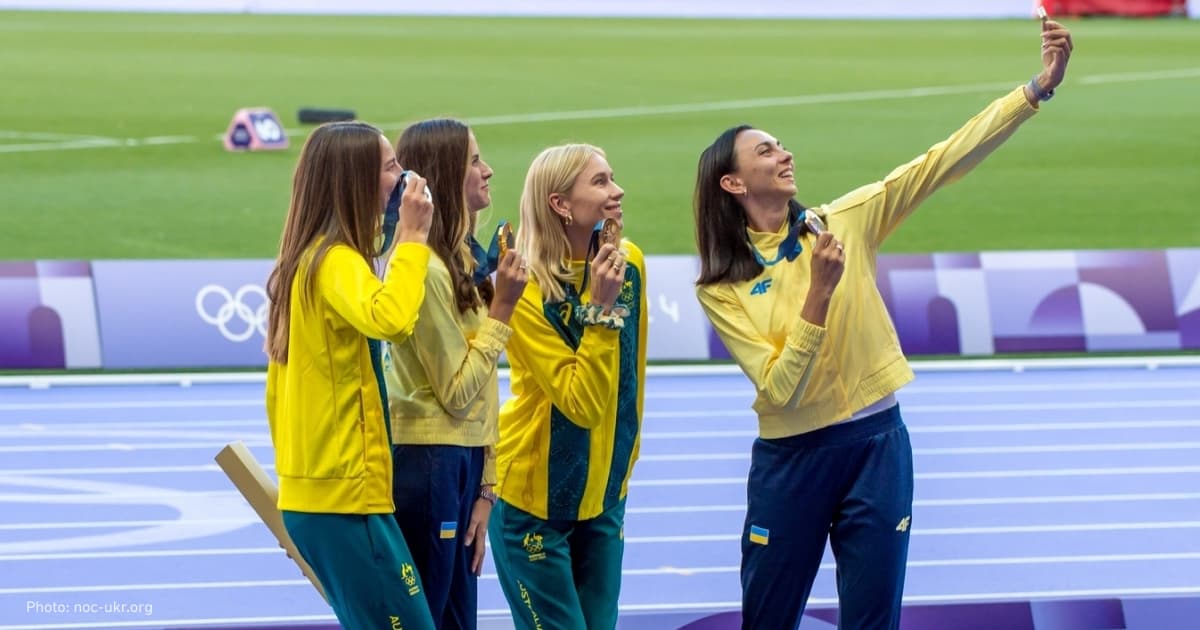"In addition to winning medals for the country, we have a goal to remind about us," an interview with Olympic medalist Iryna Herashchenko
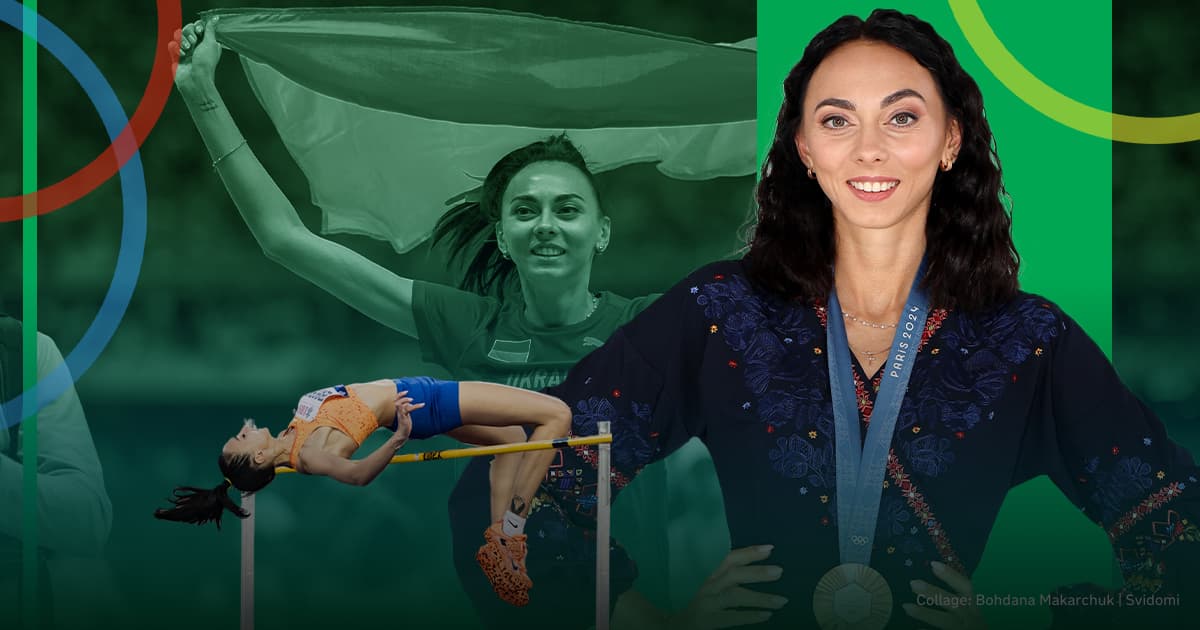
This year, Ukrainian high jumper Iryna Herashchenko won a bronze medal at the Olympic Games in Paris. She also secured another bronze medal for Ukraine at the European Championships. Iryna achieved these results despite an injury that forced her to miss the winter season.
Read about mental resilience in difficult situations, the experience of three Olympic Games, and the importance of positive thinking in a new interview from Svidomi's special project on Ukrainian Olympians.
— Iryna, you are now an Olympic medalist and an international-level athlete. Tell us, how did your sports career start?
— When I was 7 years old, I participated in school sports competitions. That's when I met my first coach, Iryna Pustovoit, who recruited students for her group. Her professionalism and strong character left a lasting impression on me. I wanted to follow in her footsteps. During those competitions she approached me and invited me to train. It's been 22 years and my opinion hasn't changed at all — I continue to train with her.
My first coach always stressed the importance of learning.
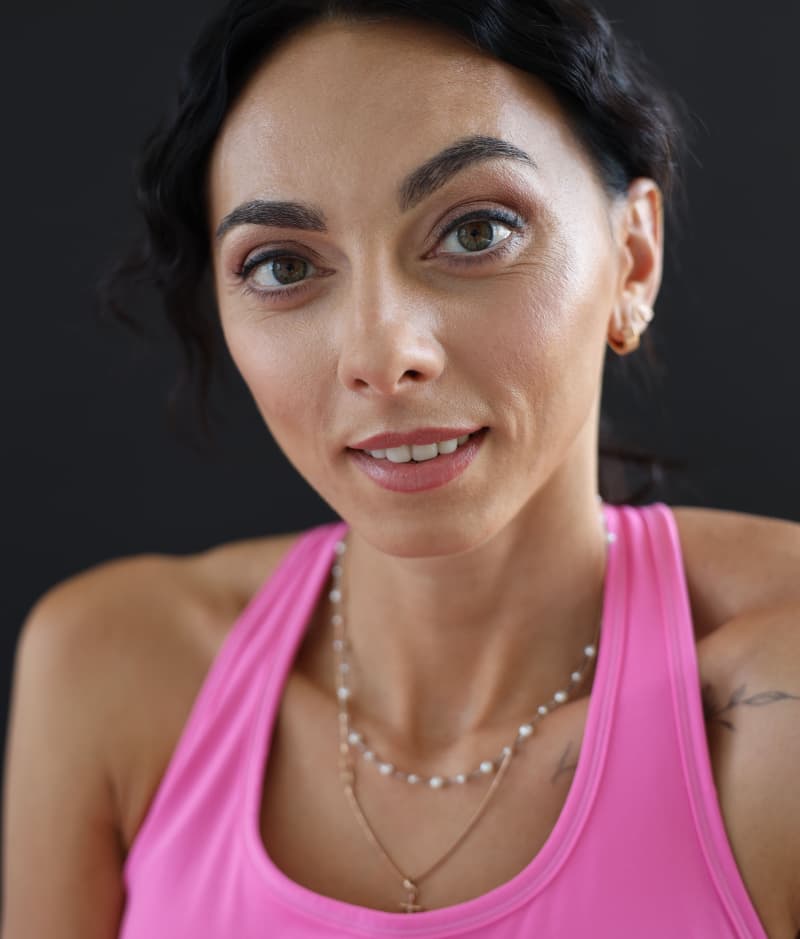
Her students wouldn't get lost in this world, even if they didn't continue their athletic careers. Her goal wasn't just to make me an Olympic champion or a record holder.
Iryna Hryhoriivna helped to form my personality. She always listened to me and my intuition. I'm very grateful for that, because we really understand each other.
— Did your parents support your decision to become a professional athlete?
When I started doing sports professionally, my parents and I didn't talk much about it.
My parents wanted me to get a traditional education (at university — ed.). But after 9th grade, I had already shown results at an international level. That’s when I talked to my coach about what I wanted to dedicate my life to. Iryna Hryhoriivna said she would support any choice I made. Still, I understood that if I entered a non-sports-related faculty, I wouldn’t be able to train professionally and achieve results.
After 9th grade, I went to my parents and said, "Sorry, but I want to go to the Institute of Physical Education. By then I had already achieved good results in sports, so my parents listened to me. They said, "Okay, do what you think and feel is right."
— At present, does our country provide adequate conditions for athletics training and development?
We trained with almost nothing. But Iryna Hryhoriivna made the training so interesting! I used to think that athletics was the most popular sport in Ukraine. Of course, we lacked some sports equipment, but we managed.
Our priority was to achieve results, not to complain about what we lacked. Nowadays, I think athletes have everything they need. For example, I would like to see more stadiums, but I'm not the kind of person who looks for negativity.
— You had an injury this winter - a stress fracture in your fibula. How is your health now after the summer competitions?
I broke it during training. In order to fully recover, we reduced the number of competitions. We had fewer starts than planned and skipped some commercial competitions.
I was anxious to go to the training camp because I knew my injured leg would be put under a lot of stress. The doctors said I could use 70% of my leg's capacity. But when I felt that my leg wasn't hurting, I decided to do the full workload that my coach gave me. I'm so glad I listened to myself. It helped me get through the season in good shape.
Now I feel good. I knew from the beginning of the summer season that I would be competing until September 14, so I was prepared for that. That made it a lot easier to get through everything. Now that I'm back home, everything is great.
— How did you deal emotionally with not competing and missing the winter season?
First, I had people around me who didn’t let me "sink." My husband, coach, and parents were there. When they saw that I was feeling down, they surrounded me with care. They reminded me of my goals and kept telling me that I could do it and that everything would be okay.
I never thought about missing the summer season in addition to the winter season. I had an inner peace. By the way, when it came to the Olympics, I trusted myself completely. I knew that I would do everything in my power. Everything to be better prepared for the summer season than if I had competed in the winter.
When we go to competitions, we reduce the workload and intensity. I was only allowed to put minimal weight on my right leg. So, I focused a lot on strengthening small ligaments and muscles that I never had time for before. I knew I was strengthening myself for the next Olympic training camps. This motivated me and pushed me forward. I realized that I had to learn from this situation instead of falling into despair.
— This year's Olympics were the third in your athletic career. How do you manage to improve your results with each competition?
I have an inner dialog with myself. I once learned, and then convinced myself, that all our thoughts are material. Therefore, we must think positively about ourselves. This attitude helps me find the inner strength to achieve both realistic and seemingly impossible dreams.
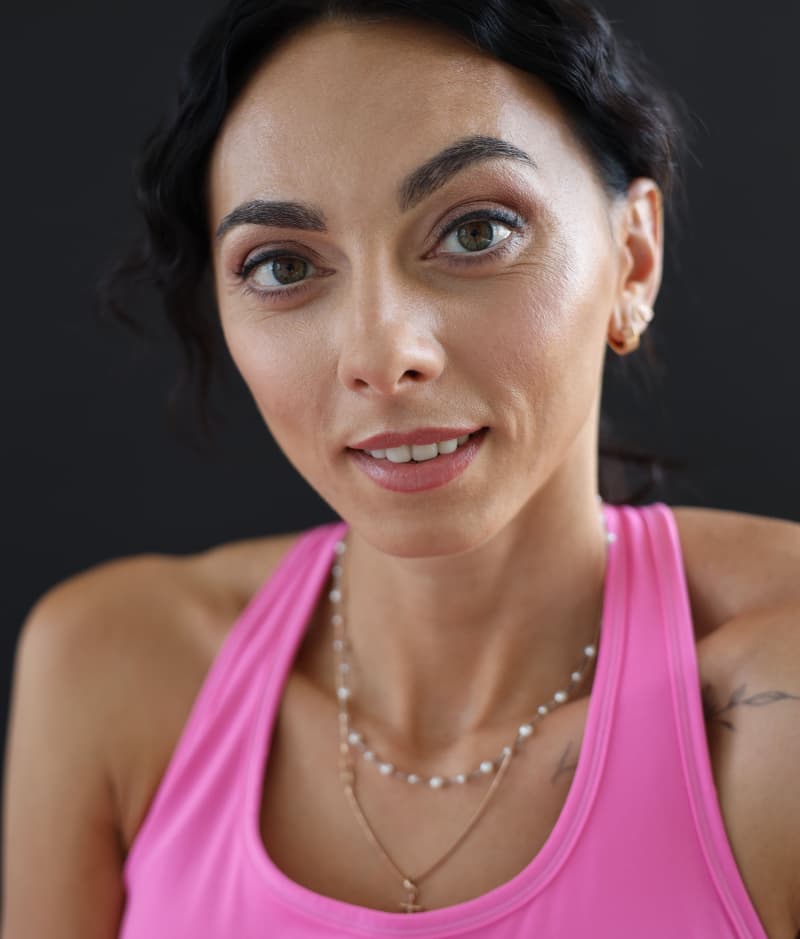
After every Olympics, I realized that I hadn't fully worked through something, especially psychologically. This prevented me from being completely detached and focused. In training before the games, I did everything I could. Once I got to the competition, I wasn't nervous. I just had to go out there and do what my coach has been teaching me since I was seven.
I also limit social media and communication with my family. I love my parents very much, but because I know they are doing well, I purposely cut myself off from conversations. I can have an emotional reaction to every word. We have come to this understanding together. I know that if my help is needed, my parents will definitely come to me. But they and my husband allow me to disconnect from small things and focus on the competition process. For example, I text my parents that everything is fine, we're at work, and they wish me luck. And that's it. I'm very grateful to my family for their understanding.
— Do the Olympics feel different to you than other competitions?
Of course. Every athlete dreams of making it to the Olympics from the moment they start their career. It's the pinnacle for athletes. The highest title an athlete can achieve is an Olympic medal. For me, all the other competitions were preparation for the Olympics.
This year was much cooler because in Tokyo we had no spectators because of COVID-19. We wore masks and couldn't leave the Olympic Village. Now there were no such restrictions.
I watched the opening ceremony on TV and I don't regret it at all. I think I saw a lot more than those who were there. I didn't go to the closing ceremony either. We refused to stay and said we wanted to go home. I felt much more joy being with my family than in Paris.
— How did the full-scale war affect your training and preparation for the Olympics?
At the beginning of the full-scale invasion, we went abroad to a training camp in Portugal. I am incredibly grateful for that experience. It was hard living far away from home, but at the same time we were able to train properly. On March 14, I went to the World Championships in Belgrade, Serbia.
This was also a challenge for me. Serbia is a partially pro-Russian country, so we were warned not to show Ukrainian symbols and preferably not to speak Ukrainian, for our safety. We weren't even allowed to wear Ukrainian symbols during the competition. But I tied a blue and yellow ribbon in my hair.
This band has been with me for three years now. It's my symbol. When I'm wearing the uniform of the Ukrainian national team, everyone knows where I'm from. But when I'm wearing normal sportswear, the ribbon is a little signal that I'm from Ukraine.
After six months I came back home. The hardest part was when I was abroad, when there were power cuts in Ukraine and communication was lost and I couldn't reach my family. Once, during a phone call, my husband said "wow" and the call was cut off. I had no idea what "wow" meant. I couldn't call him back. The media was silent. That kind of uncertainty is much worse when you're abroad than when you're at home.
The blackouts created additional problems for the athletes. My husband coaches kids. In order to see where they should jump, they set up 3-4 tripods with lamps that were powered by power banks. Of course, you can't really prepare for the World Championships in such conditions.
— What do you think about the presence of Russian athletes at the competitions?
We were warned about possible clashes or provocations at the Olympics, but I'm very happy that there were none. In fact, the Russians were neither seen nor heard. At some point I even forgot that they existed.
In our discipline, they were banned from international competitions right after the start of the full-scale war. Representatives of our federation contacted Sebastian Coe (President of World Athletics — ed.) and he banned the Russians from international events.
— Did you feel the support of foreigners as a Ukrainian athlete?
When I was in Italy with the blue and yellow ribbon in my hair, people started coming up to me. They said, "Oh my God, we feel for you, you're so strong. You're still training and competing despite the war!" And I started telling every other person what was really happening, because the news only covers the surface.
We have a goal to remind people about us. That's basically our main task, in addition to winning medals for the country and raising our flag. We have to tell the international community what's happening in Ukraine. And we must also thank the people who support us. They deserve to be thanked for their help.
— You actively manage your Instagram account. Is it a hobby or a way to communicate with your fans?
Before the invasion, I used to update my page a lot more often.
After it started, it all lost its meaning for me. I couldn't allow myself to broadcast what seemed like a normal life on Instagram. I felt ashamed, knowing that so many girls and boys on the front lines had left their civilian lives behind to protect us.
But now I see immense support from the military. They need all kinds of emotions. Watching their athletes is at least interesting to them, so I've started posting a little more actively. But it's entirely my choice; I don't make any money from social media.
— What are your plans for the future?
Of course, I will continue to improve my results and fight for Olympic gold. As for other plans, after the Olympics I passed a professional exam in psychology. I am going to get a master's degree. It's something I enjoy and need, something I want to develop apart from my athletic career.
It will be recalled that earlier, Svidomi interviewed silver medalist and athlete Illia Kovtun.

